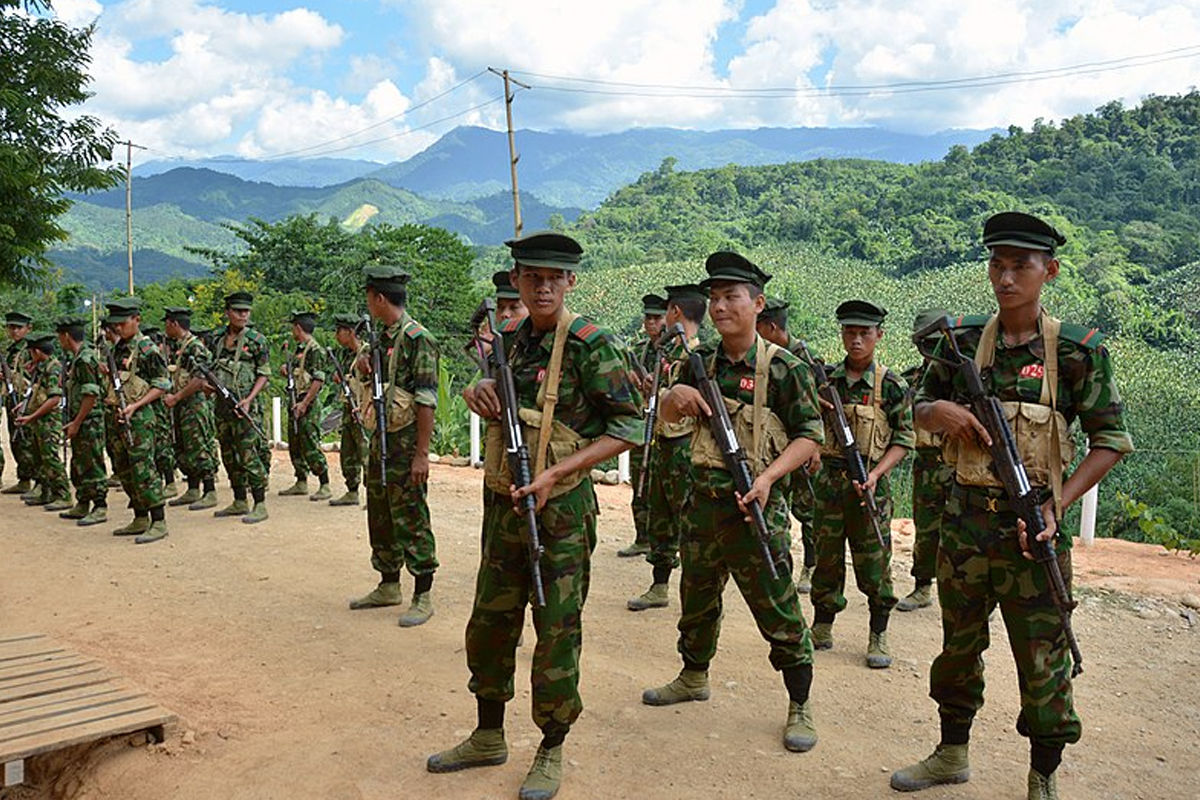Myanmar’s People United in Defiance: UN Urges Global Action to End Military Rule
The report reflects a strong and unified sentiment among Myanmar’s population: a profound rejection of military rule.

A new report by the UN Human Rights Office delivers a stark portrait of the continued suffering and resilience of the people of Myanmar, more than four years after the military seized power in a 2021 coup. The report, to be presented to the UN Human Rights Council on 1 July 2025, draws from extensive consultations with people across Myanmar’s diverse communities and highlights a growing consensus for democratic transformation and an end to authoritarian military rule.
Years of Crisis and Unrelenting Violence
Since the February 2021 military coup, Myanmar has plunged into a spiraling human rights catastrophe. UN High Commissioner for Human Rights Volker Türk described the situation as an “increasingly catastrophic human rights crisis” where violence, persecution, and impunity have touched every facet of life. From targeted airstrikes in ethnic minority regions to mass arbitrary detentions and systemic judicial abuse, the scope of state-led repression has deepened national trauma.
The report reflects a strong and unified sentiment among Myanmar’s population: a profound rejection of military rule. “They don’t want to be ruled by guns,” Türk stated, “but yearn for a peaceful, inclusive and democratic society.”
Listening to Myanmar’s Voices: A People’s Vision for Justice
UN investigators conducted wide-reaching consultations across various demographics, with a particular emphasis on youth, women, and ethnic minorities. Across interviews, four overarching pillars for resolving the crisis emerged: accountability, good governance, sustainable development, and coordinated international action.
The population’s demands go beyond simply ending military dominance. They include dismantling deeply entrenched institutions that have historically empowered the military at the expense of civilian rule, and building an inclusive system that acknowledges past injustices.
Women, youth, civil society organizations, grassroots networks, and independent media were collectively identified as the key “constituents for change.” These groups, the report emphasized, are already shaping democratic frameworks and forging paths to reconciliation from the bottom up.
Systemic Injustice and the Role of the Military-Backed Judiciary
Among the most damning findings of the report is the extensive abuse of Myanmar’s judicial system. Former political prisoners detailed the role of an instrumentalized judiciary in suppressing dissent—highlighting how judges often issued harsh sentences based on little or no evidence.
Lawyers described a justice system completely subservient to the military regime. In thousands of cases, legal representation was either denied or obstructed. The report calls for a complete overhaul of the judiciary, stressing that any future legal system must operate independently to rebuild public trust.
Additionally, calls for the release of all political prisoners, including Nobel laureate and former State Counsellor Aung San Suu Kyi, were consistent across interviews and submissions.
Addressing Historical Injustices and Ensuring Accountability
The report also urges Myanmar to confront long-standing abuses against marginalized communities, particularly the Rohingya. It highlights how structural racism and religious discrimination have historically underpinned the military’s political dominance.
Accountability for all sides—both state and non-state actors—is essential, the report stresses. It advocates for criminal justice processes that meet international standards, whether through domestic tribunals, international courts, or hybrid legal mechanisms. These measures should be embedded within a broader transitional justice framework to ensure long-term reconciliation and healing.
The Refugee Crisis and International Responsibilities
Millions of Myanmar citizens remain displaced, many of whom have fled violence or persecution since the coup. Most displaced people expressed a strong desire to return and participate in rebuilding a democratic society—but only when it is safe to do so.
The report recommends that host countries provide displaced people with formal long-term legal status, including access to health care, education, and work. This is particularly critical for Rohingya refugees, who remain in precarious conditions in camps in Bangladesh and elsewhere, without guarantees of citizenship, safety, or fundamental rights in Myanmar.
Humanitarian access has also been severely compromised. With deepening food insecurity in Rakhine State and funding cuts in refugee camps, particularly in Bangladesh, the report urges increased and sustained international assistance. It calls on ASEAN member states and others to explore cross-border aid mechanisms to reach those in need.
International Community Must Act Decisively
The report calls for a reinvigorated international response grounded in principled diplomacy, sanctions, and proactive engagement with Myanmar’s emerging democratic institutions and civil society.
While some targeted sanctions have been imposed, the report notes that broader and more consistent pressure is necessary to isolate the military regime and support grassroots governance. It encourages stronger political and economic backing for local democratic structures that have taken shape in areas beyond military control.
Crucially, the report stresses the need for long-term planning for a post-military Myanmar. “This report underscores the importance of planning for the day after,” said Türk. “There are strong, resourceful, and principled individuals and groups rallying and creating the conditions for an inclusive and democratic future. They are a shining example of hope for a peaceful future.”
The UN’s latest findings reinforce what many in the international community already know: Myanmar’s people continue to resist authoritarianism with remarkable courage and clarity. But their success depends heavily on the global community’s willingness to act—not just with words, but with tangible and sustained support for justice, democracy, and human dignity in Myanmar.
ALSO READ
Strengthening Ties: China's Economic Diplomacy with Malaysia, ASEAN, and the GCC
Public Finance Act Overhaul to Boost Fiscal Transparency and Accountability
Delhi Deluge: Accountability on the Line After Minto Bridge Flood
India's Parliamentary Delegation Reinforces ASEAN Ties, Condemns Terrorism
Call for Judicial Accountability: CPI's Impeachment Proposal Against Justice Varma










